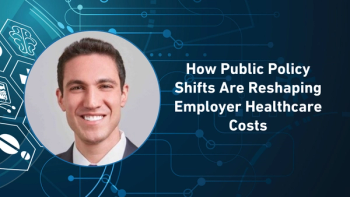
SkilaMederi and Qforma merge, hoping to make a powerhouse in prescriber-influence analytics
Merger combines Qforma's local analytics with SkilaMederi's national perspective
Two companies that have been at the forefront of developing analytical tools to identify key opinion-leader (KOL) and related prescriber data are now one, with the expectation that the new entity, to retain the Qforma name, will be a more effective resource as the medical community becomes more concentrated around health systems, accountable care organizations and the like. “Our plan is to use advanced analytic tools based on social media activity, medical claims databases and other sources, to provide marketers and field sales forces with daily alerts on what is happening at their key accounts,” says Kilian Weiss, CEO of SkilaMederi and now CEO of the combined organization.
BelHealth Investment Partners (New York) a private equity firm, is, in effect, buying Qforma and merging it with its existing property, SkilaMederi; it says that it will be investing additional capital in the merged firm. No purchase price information was released.
Morris Plains, NJ-based SkilaMederi, founded in 1995 (as Skila, merged by BelHealth in 2012 with Mederi AG) has been focused on life sciences marketing and market-research data, offering CrowdLink, a “social analytics and engagement platform” for monitoring key account activity, and ILaunch, a planning and execution tool for managing product launch teams. Qforma (Santa Fe, NM), founded in 2000, analyzes social networks (such as physicians), merging that information with medical claims data to create tools to enable “targeting, valuation and field force optimization” functions. Qforma also notes that its analytics can be useful in performing metrics on
Weiss says that Qforma’s perspective skews toward local networks, while SkilaMederi’s toward national ones, so the combination will provide an integrated view. “A medium- to longterm objective will be to use similar techniques on patient or consumer behaviors,” he says, “but for now we’re concentrated on the dramatic changes being wrought by ACOs and managed care in the pharma marketplace.”
Newsletter
Stay ahead in the life sciences industry with Pharmaceutical Commerce, the latest news, trends, and strategies in drug distribution, commercialization, and market access.




